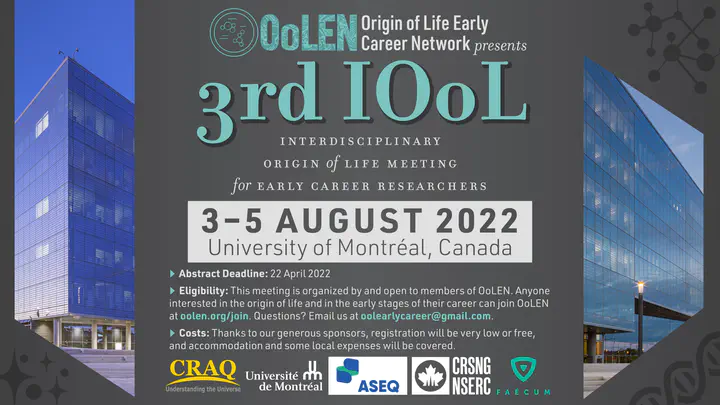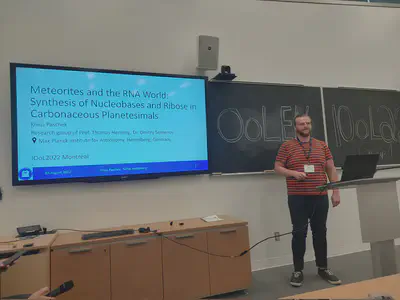Contributed talk at IOoL 2022
Meteorites and the RNA world: Synthesis of Nucleobases and Ribose in Carbonaceous Planetesimals
 Image credit: OoLEN
Image credit: OoLENAbstract
The origin of life might be sparked by the polymerization of the first RNA molecules in Darwinian ponds during wet-dry cycles. The nucleobases and the sugar ribose are key life-building blocks and were found in carbonaceous chondrites. Their exogenous delivery onto the Hadean Earth could be a crucial step toward the emergence of the RNA world. Here, we present the formation of these prebiotic organics through the Strecker synthesis and a simplified version of the formose reaction inside carbonaceous chondrite parent bodies. By using a coupled physicochemical model, we calculate the abundance of these molecules within planetesimals of different sizes and heating histories. We perform laboratory experiments using catalysts present in carbonaceous chondrites to infer the yield of ribose among all pentoses forming during the formose reaction. These laboratory yields are used to tune our theoretical model that can only predict the total abundance of pentoses. We found that the calculated nucleobase and ribose abundances were similar to the ones measured in carbonaceous chondrites. In conclusion, the Strecker synthesis and aqueous formose reaction might produce most of these organics in carbonaceous chondrites. The life-building blocks of the RNA world could be synthesized inside parent bodies and later delivered onto the early Earth.
QC H2V 0B3 Montréal
QC, Canada
